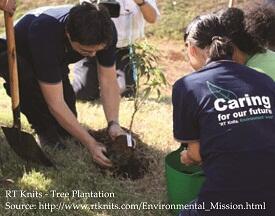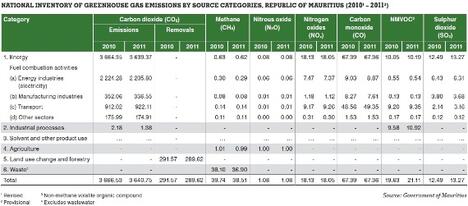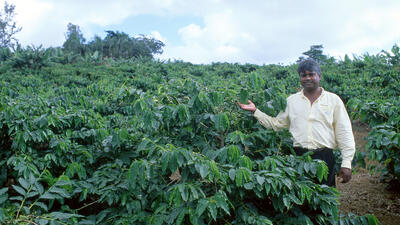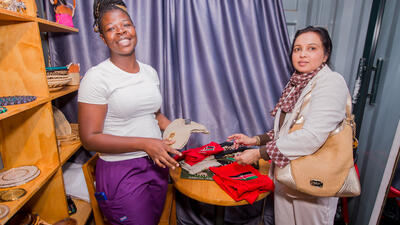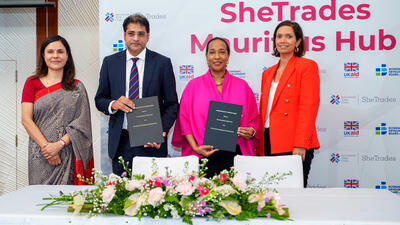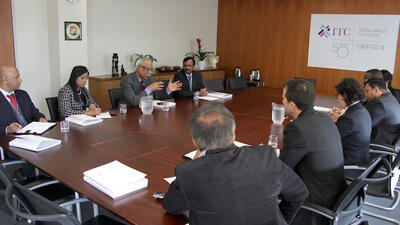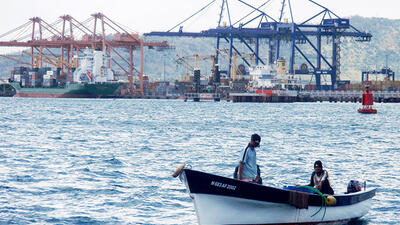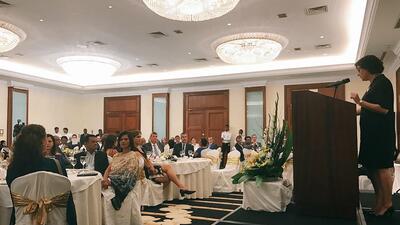Developing green industry in Mauritius
It has transformed from a mono-crop economy primarily based on sugar into a vibrant and robust multi-sector, industrial island state economy in which export-oriented manufacturing is the largest contributor to GDP. However, this change has not been made without consequences. The severe stress related to the island’s accelerated economic growth has had a negative impact on local resources, climate, biodiversity, environment, quality of life and society, and has disturbed ecological, environmental and societal balances. More specifically, the trade-off of economic growth and development is manifested by:
- High energy consumption per unit of GDP;
- Higher greenhouse gas emissions;
- Degradation in the quality of water and air;
- Higher costs of living.
These development outcomes are profound and tangible, and some, unfortunately, are irreversible.
To mitigate the situation, Mauritius has embarked on a long-term reconstruction plan with the aim of regaining past glory, or at least halting further deterioration. The plan is part of the Maurice Ile Durable (MID) project, an initiative introduced by the prime minister to build a resilient, green and sustainable country. The project has ownership at the highest level and buy-in from both the private sector and civil society. It is implementing a sustainable consumption and production strategy that will produce more with fewer resources, particularly water, energy and materials, and will optimize satisfaction through intelligent consumption. The guiding principle is to reduce, recycle and reuse scarce resources and reinvent a new lifestyle.
Nevertheless, the response to the government’s call for sustainable development has been immediate and overwhelming. A battery of policy initiatives, including new laws, regulations and directives, has been enacted and promulgated, and is being implemented. The private sector has matched the government’s move through investment in energy efficiency, waste reduction and pollution control technology. It is also investing in renewable energy sources and generating electricity from bagasse (the fibrous residue of sugar cane when it is crushed to extract the juice), wind turbines and solar panels. Civil society contributes through waste reduction and collection and solid waste recycling.
The project is spearheading a number of programmes, including the MID Fund (part of the MID Project), a green loan facility and new economics.
The MID Fund is a national fund financing initiatives that promote green industry in Mauritius. These include:
- A national campaign to replace conventional bulbs with compact fluorescent bulbs;
- Policies on electricity generation from non-fossil resources and provision to sell on the national grid;
- Sustainable consumption and production campaigns;
- Recycling of plastic, metal scrap, solid waste, construction materials and used tyres;
- New building codes to maximize efficiency;
- A solar heating campaign;
- A tree planting campaign.
A green loan facility has been set up in collaboration with the Agence Française de Développement, allowing commercial banks to offer preferential credit facilities to companies investing in green industries. The green loan facility finances:
- Investments in technology to recycle water and lower energy consumption at a large dry cleaning company;
- Energy efficiency in hotels through better management of air conditioning, lighting and water heating;
- The installation of solar panels and water heaters;
- Recycling of water in manufacturing industries and hotels;
- The conversion of used kitchen oil into vehicle fuel and the production of biogas from solid garden and kitchen waste;
- The recycling of sugar cane waste to produce biofertiliser;
- Investments in technology to reduce the use of chemicals in the manufacturing of optical lenses.
In terms of new economics, several companies in Mauritius have invested in green technologies to maximize return on investment and lower operational costs. RT Knits, a textile company, uses solar panels to heat water for its dyeing and washing operations, sunlight for lighting, and air cooling instead of air conditioning. It recycles and reuses water from its dye house, uses ozone for washing, recycles textile waste, and plants trees as part of its corporate social responsibility programme.
Click on the image to see the full size
The Mauritius Commercial Bank in St Jean is a green development landmark. It has an ecological architecture, is the first energy-efficient building in Mauritius, uses recycled materials, and produces part of its energy requirements from solar panels. Its features include:
- A thermal storage system to reduce energy consumption;
- Optimization to reduce energy loss;
- Low-energy consuming lamps controlled by sensors;
- 2,000 photovoltaic modules to produce 430 kilowatts of electricity during sunny hours;
- Rain water collection for reuse and recycling;
- Furniture and flooring made from recycled products.
These initiatives demonstrate the aspiration of Mauritius to become a world leader in developing green industries. They also show how collaboration between government, the private sector and civil society can improve the lives of Mauritians and create a framework for a green, industry-oriented island state economy.




